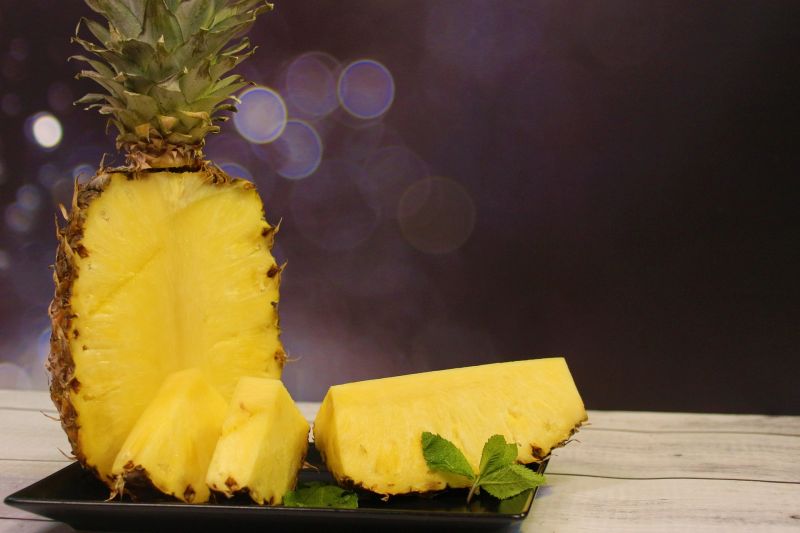What is bromelain good for?
Bromelain is a mix of enzymes that is derived mainly from the core of the pineapple fruit, as well as from the stem of the pineapple plant itself, although it is also present in lesser amounts in other parts of the fruit.
Given that we habitually discard the core of the pineapple fruit, bromelain supplementation is an efficient way of achieving anything more than just trace amounts of this interesting enzyme.

Bromelain for inflammation
While bromelain and similar enzymes are often used as a digestive aid, a lot of research has demonstrated that bromelain offers many additional health benefits, most of which are derived from its potent anti-inflammatory properties.
For example, bromelain is often suggested for reducing pain and swelling after surgery or injury, especially within the context of the nose, sinuses and gums, but also other body parts too. In some cases, bromelain is even applied topically in order to treat skin burns.
Bromelain for osteoarthritis
Bromelain's anti-inflammatory properties have also made it a potential treatment for osteoarthritis, specifically for treating the pain, stiffness and lack of mobility associated with the condition. One review found that participants who took 400mg of bromelain, twice a day, observed an improvement in symptoms.
Bromelain for cardiovascular health
One of bromelain's many properties is its ability to prevent blood platelets from sticking together, essentially serving as a natural blood-thinning agent. This reduces the chance of clot formation in the blood, and consequently reduces the risk of suffering cardiovascular events, including strokes and heart attacks, as well as serving as a treatment for conditions such as peripheral artery disease and high blood pressure.
Further bromelain research
Research into bromelain's other potential health benefits are ongoing, and studies show that it has potential in treating conditions such as digestive problems and several forms of cancer.
When should I take bromelain?
The optimal time for taking bromelain comes down to the primary goal you are striving for, whether you are taking bromelain as a digestive aid, or whether you are taking bromelain for its other benefits, chiefly its anti-inflammatory properties.
If your main goal is not digestion related, bromelain is recommended to be taken between meals in order to avoid any degradation happening as a consequence of the stomach's acid, and therefore maximizing absorption in the small intestine.
You would only really take bromelain with a meal if your primary objective is to use it as a digestive aid.
What does bromelain combine well with?
Bromelain with curcumin, for synergy and increased absorption
Bromelain is known to significantly improve the bioavailability and absorption of curcumin, the active ingredient in turmeric. Curcumin by itself is notoriously hard to absorb, and is often paired with piperine (found in black pepper) for the same reason.
However, not only does bromelain improve curcumin's bioavailability, but they both share potent anti-inflammatory properties, and have been shown to work together to reduce pain and swelling, and slow the progression of inflammatory diseases.
Bromelain with quercetin, for enhanced absorption
You may also have noticed that quercetin supplements include bromelain, and this is for the exact same reason. On its own, quercetin has a rather low bioavailability, which means that your body is unable to absorb it well, but when paired with bromelain, the bioavailability of quercetin increases significantly.
Bromelain with vitamin C, for inflammation
Bromelain's anti-inflammatory properties have been shown to combine well with those of vitamin C, which itself also exhibits anti-inflammatory and antioxidant effects. There are an increasing number of studies featuring the combination of vitamin C and bromelain as a treatment for several types of inflammation.
Bromelain with papaya enzyme, for stomach inflammation
Bromelain also pairs well with another type of enzyme, specifically papaya enzyme, also known as papain. A recent animal study in 2023 revealed that papain and bromelain work together effectively in reducing stomach inflammation.
What are natural sources of bromelain?
If you are interested in achieving your daily bromelain intake through your diet, rich sources of bromelain include:
- Pineapple
While we readily associate bromelain with pineapple, it is easy to forget that most of the bromelain is found concentrated within the stem and core of the fruit, which we mostly discard during preparation. If you really want to get the most out of your pineapple, you will need to also eat the core as well.
Bromelain data sources & further reading
- https://examine.com/supplements/bromelain/
- https://www.verywellhealth.com/bromelain-what-should-you-know-about-it-88318
- https://www.nccih.nih.gov/health/bromelain
- https://www.medicalnewstoday.com/articles/323783
- https://www.healthline.com/nutrition/quercetin
- https://www.ncbi.nlm.nih.gov/pmc/articles/PMC7661945/
- https://www.oarsijournal.com/article/S1063-4584(21)00611-7/fulltext
Last updated by Asklepios on 1st February, 2025